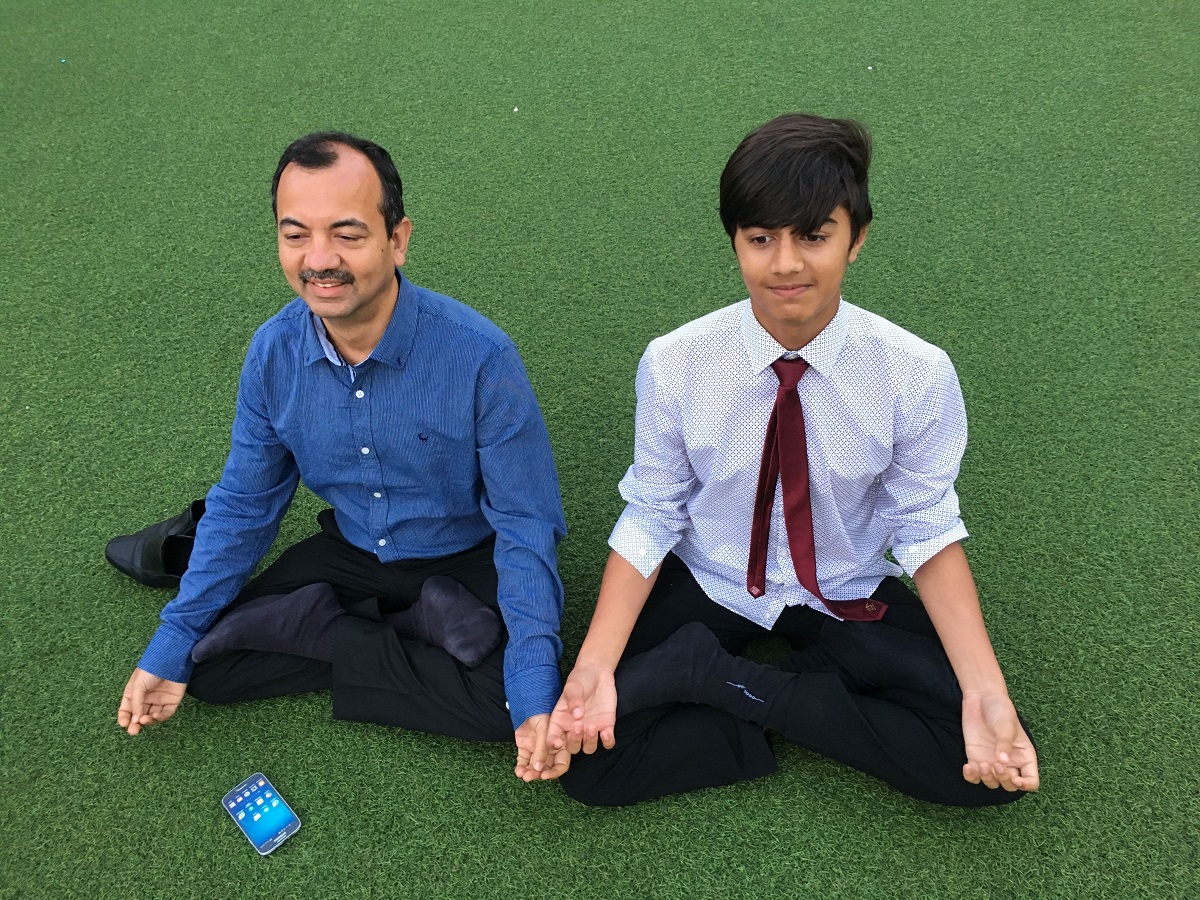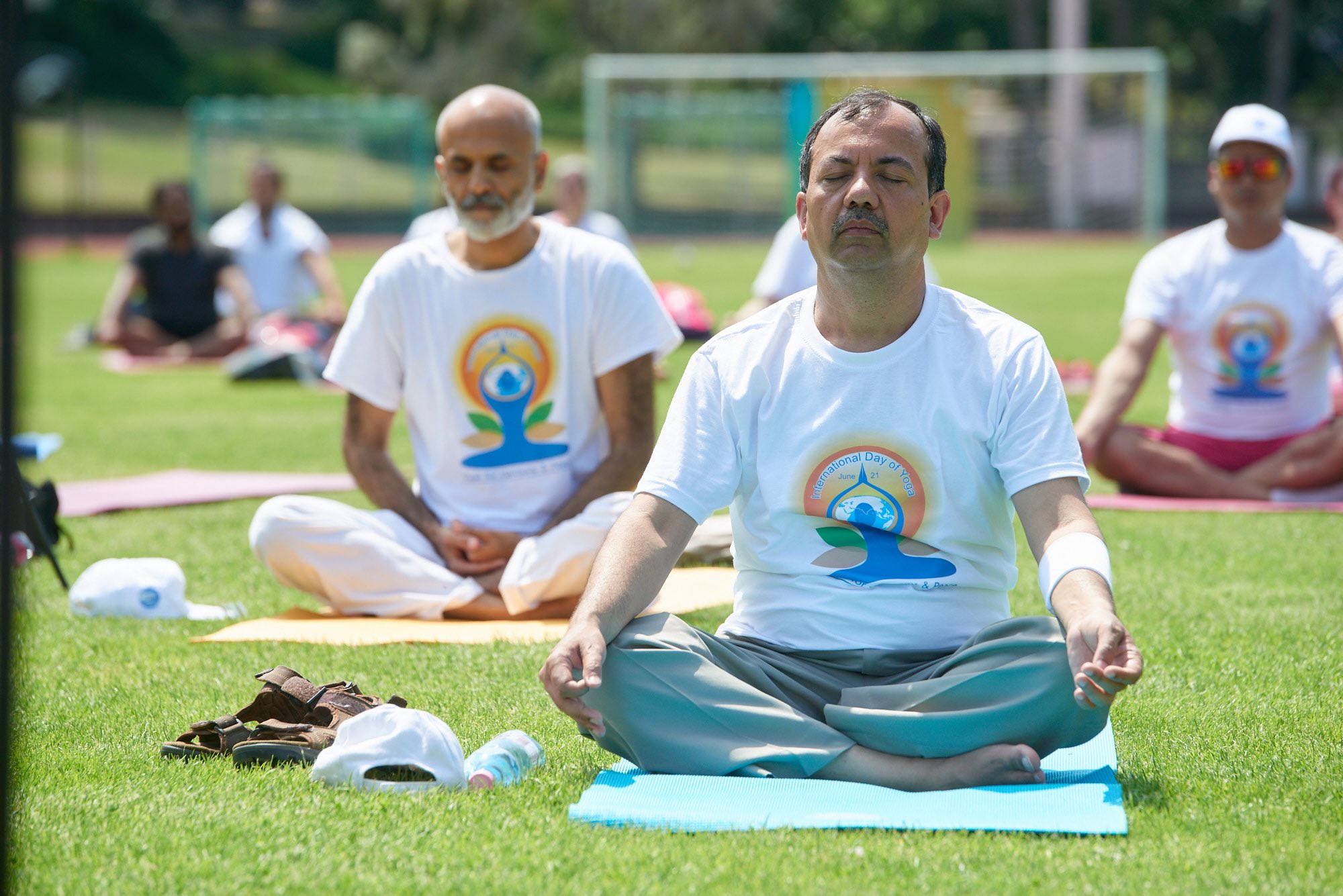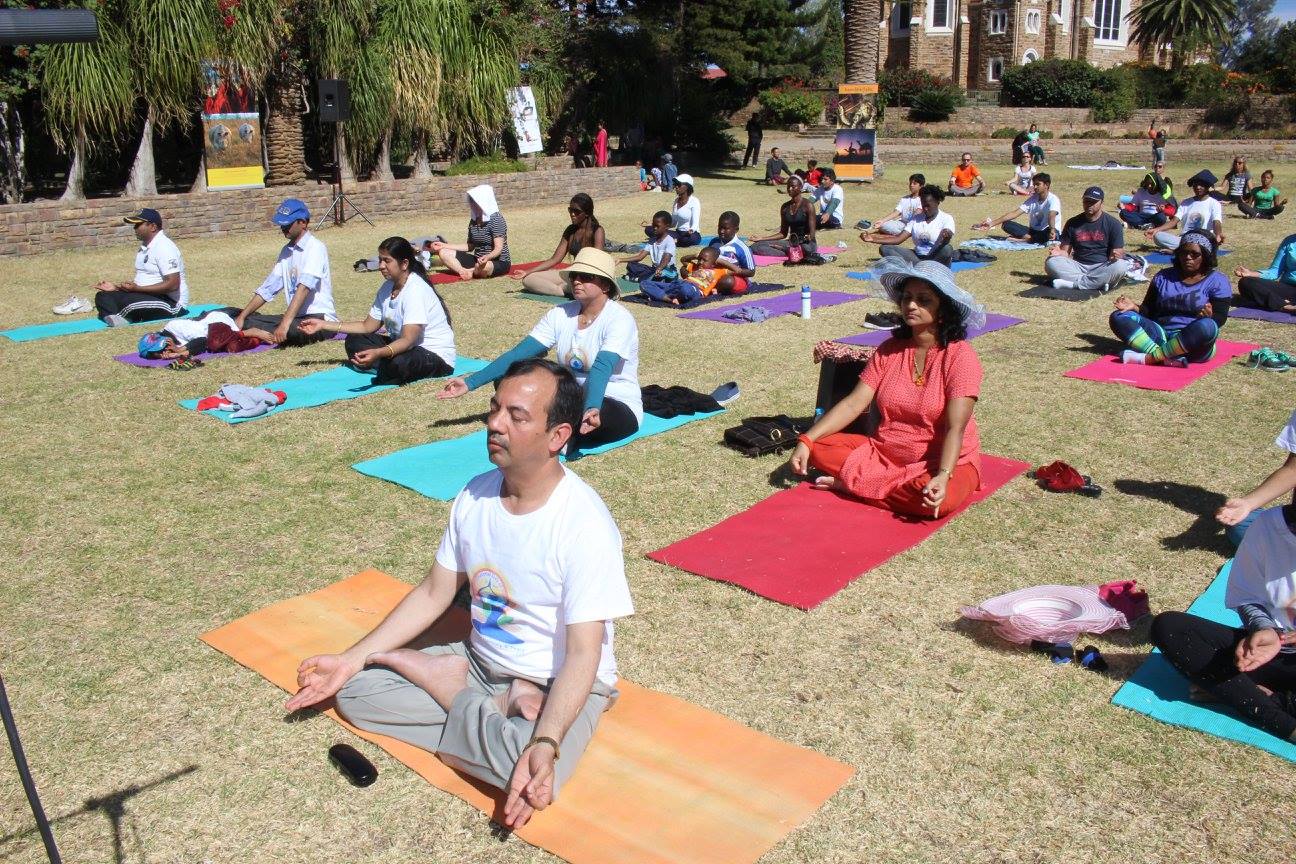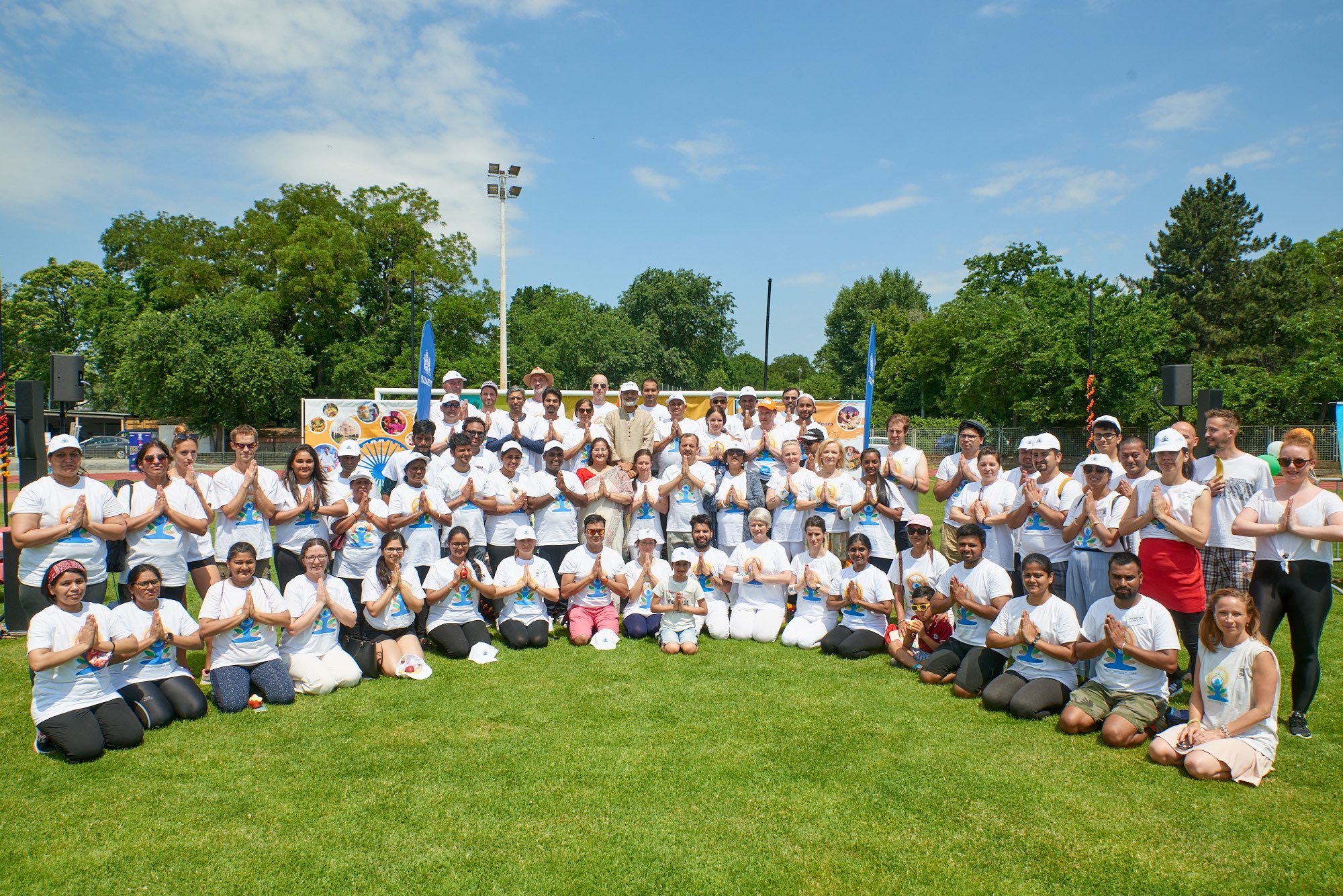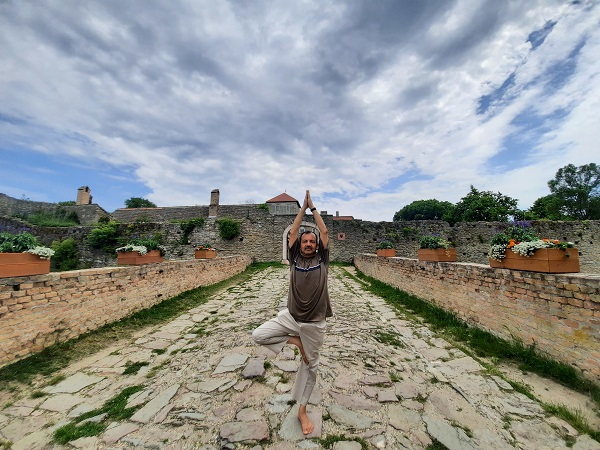
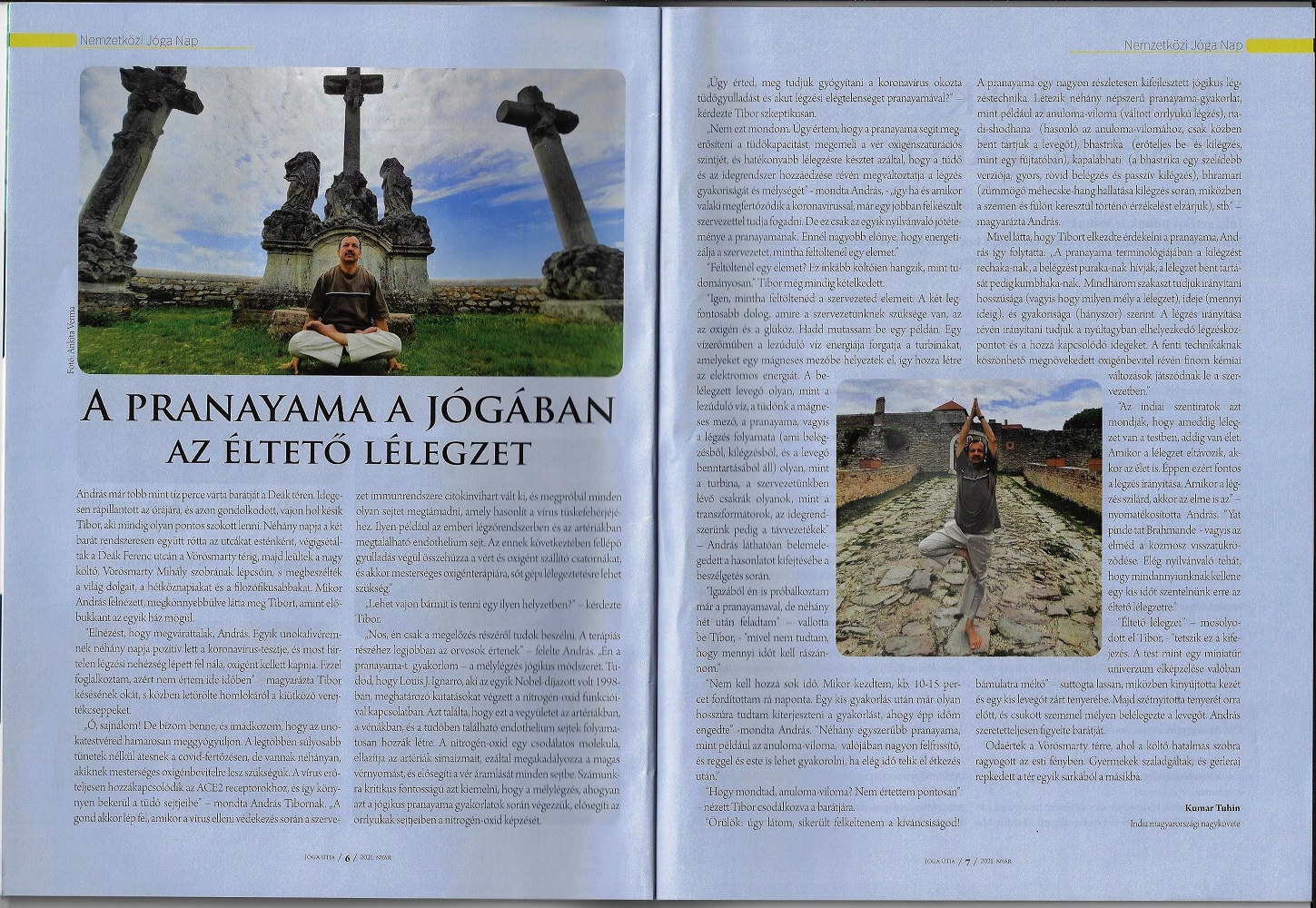
English version
András had been waiting at Deák Ferenc tér for his friend already for over ten minutes. Looking anxiously at his watch he wondered why Tibor, who was always punctual, had not yet reached. For the last few days, both friends had been regularly going on their evening walk together, walking along Deák Ferenc utca upto Vörösmarty tér and then sitting on the steps of the statue of poet Mihály Vörösmarty, chatting about everything from mundane to sublime. As he lifted his head, he noticed to his relief Tibor emerging from behind a building.
“Sorry to keep you waiting, András. One of my cousin brothers, who had tested positive for coronavirus a few days ago, had suddenly developed breathing issues and had to be placed on respiratory support. I got caught up in that,” Tibor explained the reason behind his late arrival while wiping off the drops of sweat that had appeared on his forehead.
“Oh..sorry to hear that. But I hope and pray that your brother will recover soon. Most persons do not develop acute symptoms due to the covid -19, but a few do, and they may need to be provided with oxygen support. The virus binds very well to the ACE2 receptors and thus enters the lung cells,” András told Tibor. “The problem occurs when the body’s immune response system, in its fight against the virus, leads to a cytokine storm trying to attack any cell that has resemblance with the spike protein of the virus. This includes the endothelium cells of the human airway as well as the arteries. The resulting inflammation in these cells ends up constricting these pathways carrying blood and oxygen, and then oxygen support or even ventilation may be needed.”
“Is there anything that we can do to deal with such a situation?” Tibor asked.
“Well, I can talk only about the prevention part. Because the treatment aspect is best handled by the doctors,” András responded, “I have been practising Pranayama - the yogic method of deep breathing. You know that Louis J Ignarro, who was one of the Nobel Prize winners in 1998, had done seminal research on the functions of Nitric Oxide, and found that it is produced continuously by the endothelium of the arteries, veins and lungs. Nitric Oxide is a wonderful molecule, it relaxes the smooth muscles of the arteries to prevent high blood pressure and promotes blood flow to all organs. The critical point for us to note is that deep breathing as done in yogic Pranayama enhances the production of Nitric Oxide by the cells in nasal cavities.”
“You mean we can cure the covid pneumonia and acute respiratory syndrome through Pranayama?” Tibor asked in a sceptical tone.
“I did not say that. What I meant was that Pranayama helps strengthen your lung capacity, increases the oxygen saturation level in your blood, and makes your breathing more efficient by altering its frequency and depth through training of the lungs and the nervous system,” András said, “so if and when you get infected with the corona, you are better equipped. But it is only one of the obvious advantages of Pranayama. The bigger gain is that it energizes your body, like charging a battery.”
“Charging a battery? That sounds more like literary language, not scientific.” Tibor was still incredulous.
“Yes, charging your body battery. The two most important things that our body needs are oxygen and glucose. Let me use an illustration. In a hydel energy plant, the energy of falling water rotates turbines placed in a magnetic field to generate electricity. The oxygen that we inhale is like falling water; our lungs are like a magnetic field; the breathing process of Pranayama, (which includes inhalation, exhalation and retention of breath) is like a turbine; Chakras in our body are like transformers and our nervous system is like transmission lines,” András was visibly excited using these similes in his conversation.
“I did try to begin Pranamaya, but gave it up after a few weeks,” Tibor confessed, “as I was unaware how much time I will have to commit.”
“It does not take much time. When I was a beginner, it would only be about 10-15 minutes per day. After some practice, I could expand the duration as per my convenience,” András said “Some of the gentler Pranayamas like Anulom-Vilom actually are quite refreshing, and can be done both in the morning or evening provided there is a sufficient gap after the meal.”
“What was that term you used, Anulom-Vilom? I could not grasp it,” Tibor looked in amazement.
“I am happy to see your curiosity getting aroused. Pranayama is a very evolved and elaborate yogic breathing technique. There are some popular Pranayamas like Anulom-Vilom (alternate nostril breathing), Nadi-Shodhan (similar to Anulam-Vilom but with holding the breath), Bhastrika (drawing in and pushing out breath with force just as bellows in a furnace), Kapalbhati (a milder form of Bhastrika with short quick exhalations and passive inhalations), Bhramari (making a bee like sound during exhalation while blocking your sensory inputs through eyes and ears), etc.,” András explained.
Sensing that Tibor was getting interested in Pranayama, András continued, “In the terminology of Pranayama, exhalation is called Rechak; inhalation is called Purak; and retention of breath is called Kumbhak. Each of these three motions can be regulated in terms of length (meaning how deep the breath is), time (how long) and frequency (how many times). By controlling your breath, you can control the respiratory centre situated in medulla oblongata as well as other associated nerves. Through increased intake of oxygen by these techniques, subtle chemical changes take place in the practitioner’s body.”
“Indian scriptures say that as long as there is breath in the body, there is life. When breath departs, so too does life. Therefore, it is important to regulate the breath. When breath is steady, so is the mind,” András hammered in, “Yat Pinde Tat Brahmande - means your mind is a reflection of the cosmos. It is pretty obvious, therefore, that all of us should give some time to this breath of life.”
“Breath of life,” Tibor smiled, “I like this phrase.” “Body as a miniature universe is indeed a fascinating concept,” he whispered slowly, stretching his hand and catching some air in his fist. He then opened the fist near his nose and inhaled deeply with his eyes closed. András was looking at him fondly.
Both friends had reached Vörösmarty tér and the huge statue of the poet in the square was glowing in the evening light. Children were running around and a passel of pigeons flitted about from one corner to another.
***

When I was young, I used to consider the schrödinger wave equation as an ultimate example of human intellect And, it was in my college days that I first lay my hands on the hindi translation of दृग्दृश्य विवेक: (Drig-drishya-Viveka). What a book ! Suddenly, the concept of (माया ) Maya started to make sense.
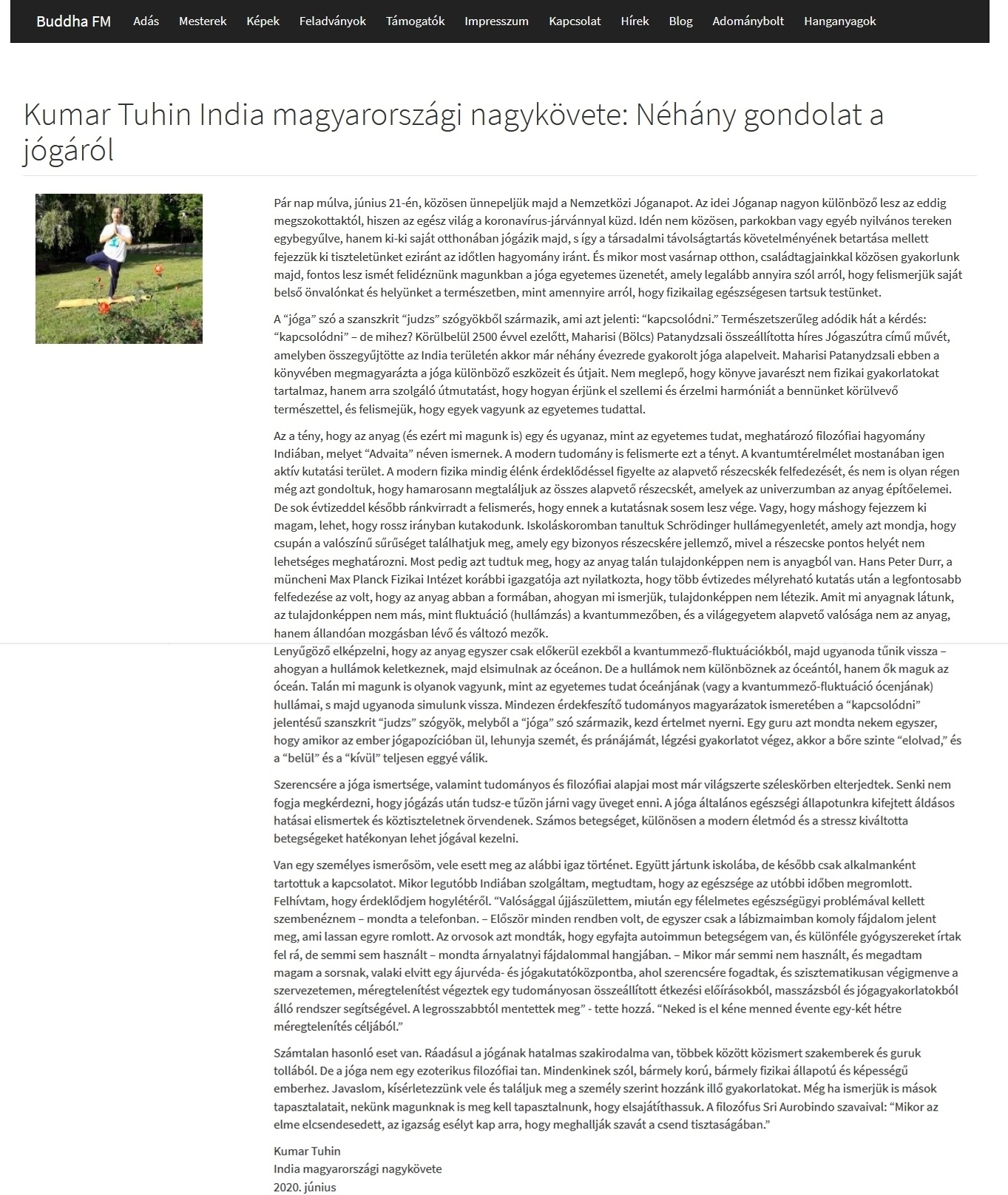
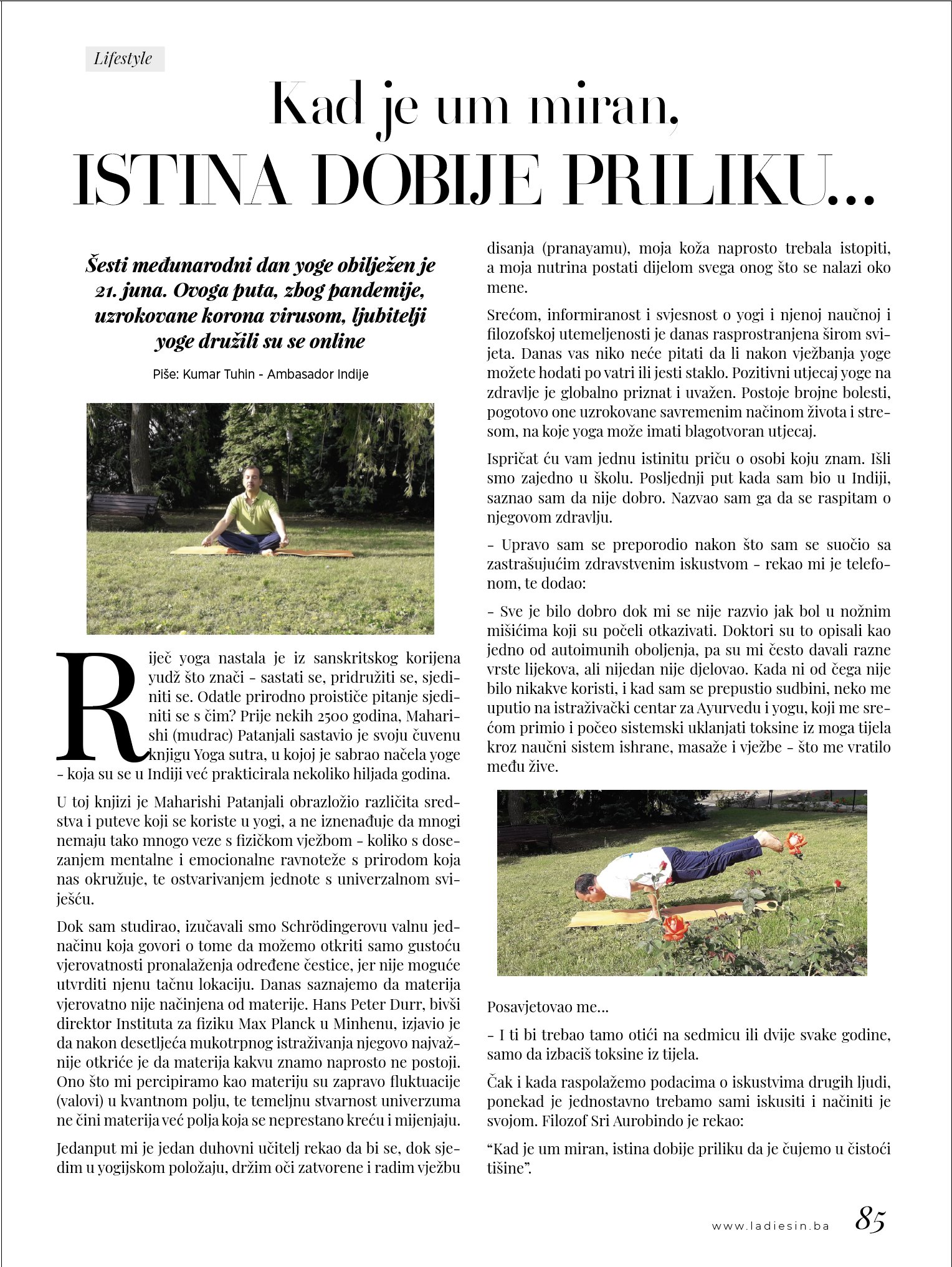
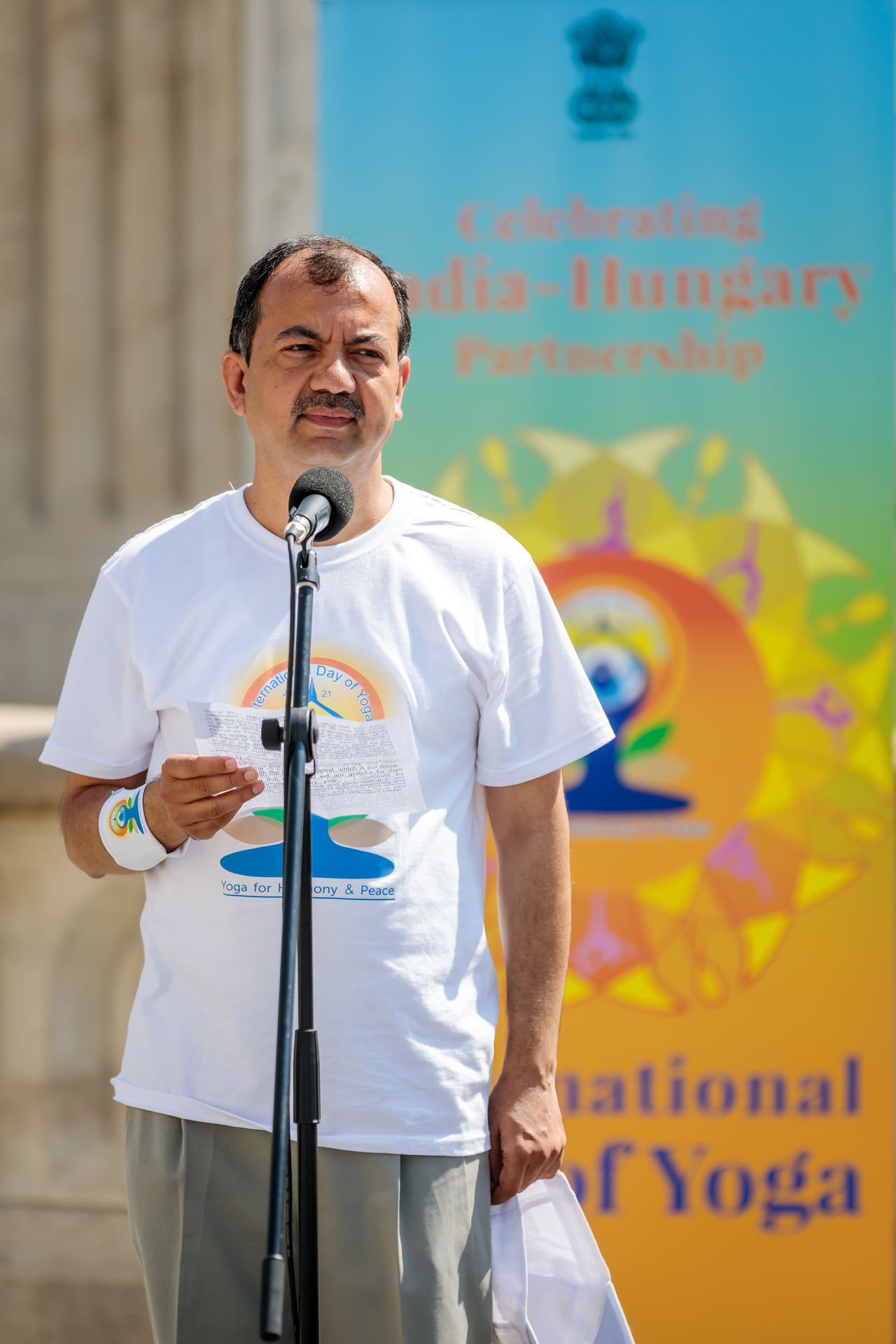
At Athletic Center Stadium, Budapest. Addressing the participants
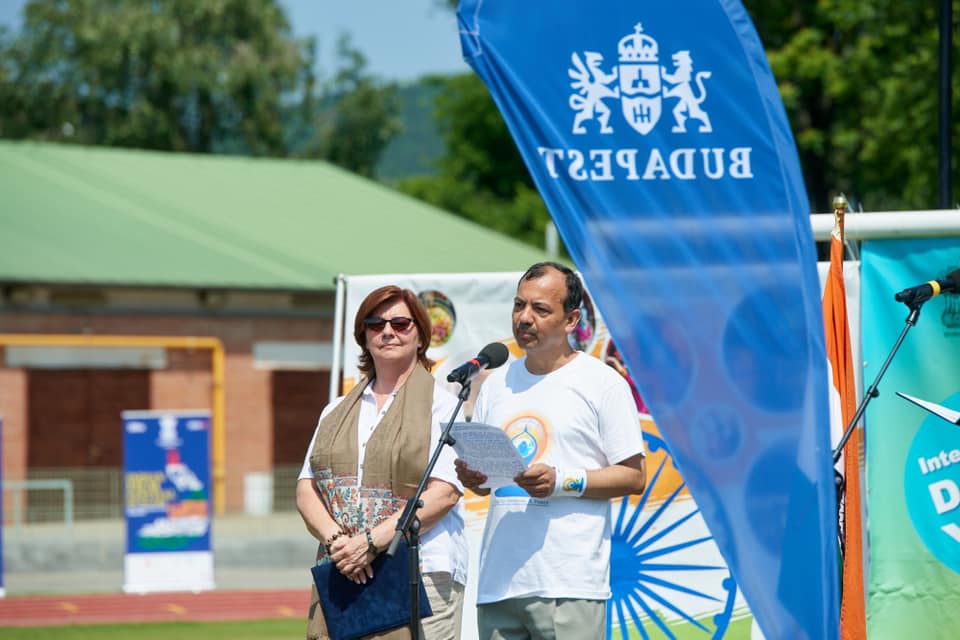
With Deputy Mayor of Budapest Németh Gy. Erzsébet, opening the International Day of Yoga event on 20 June 2021
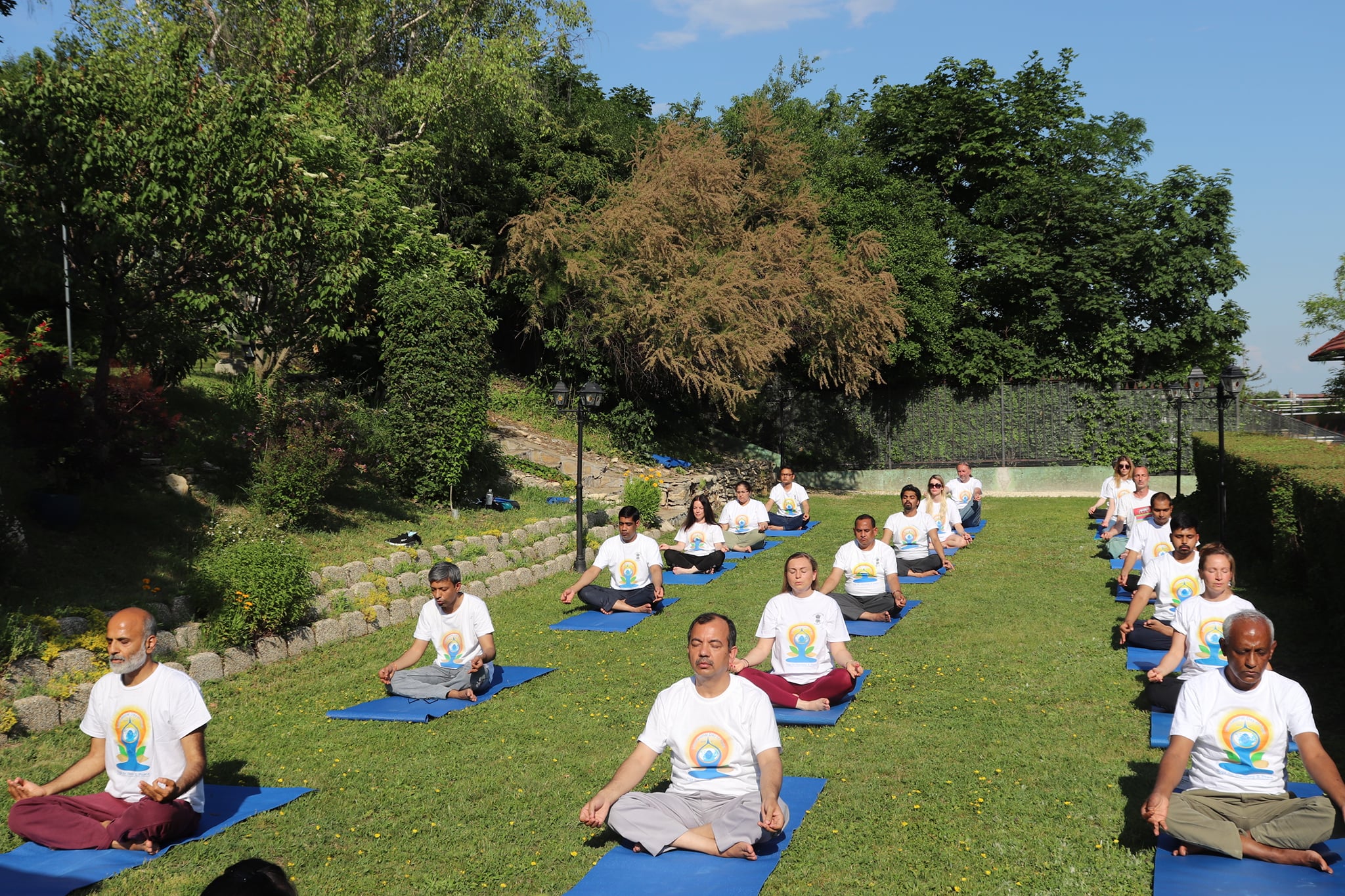
Yoga with Indian Embassy staff, in run up to the main event.
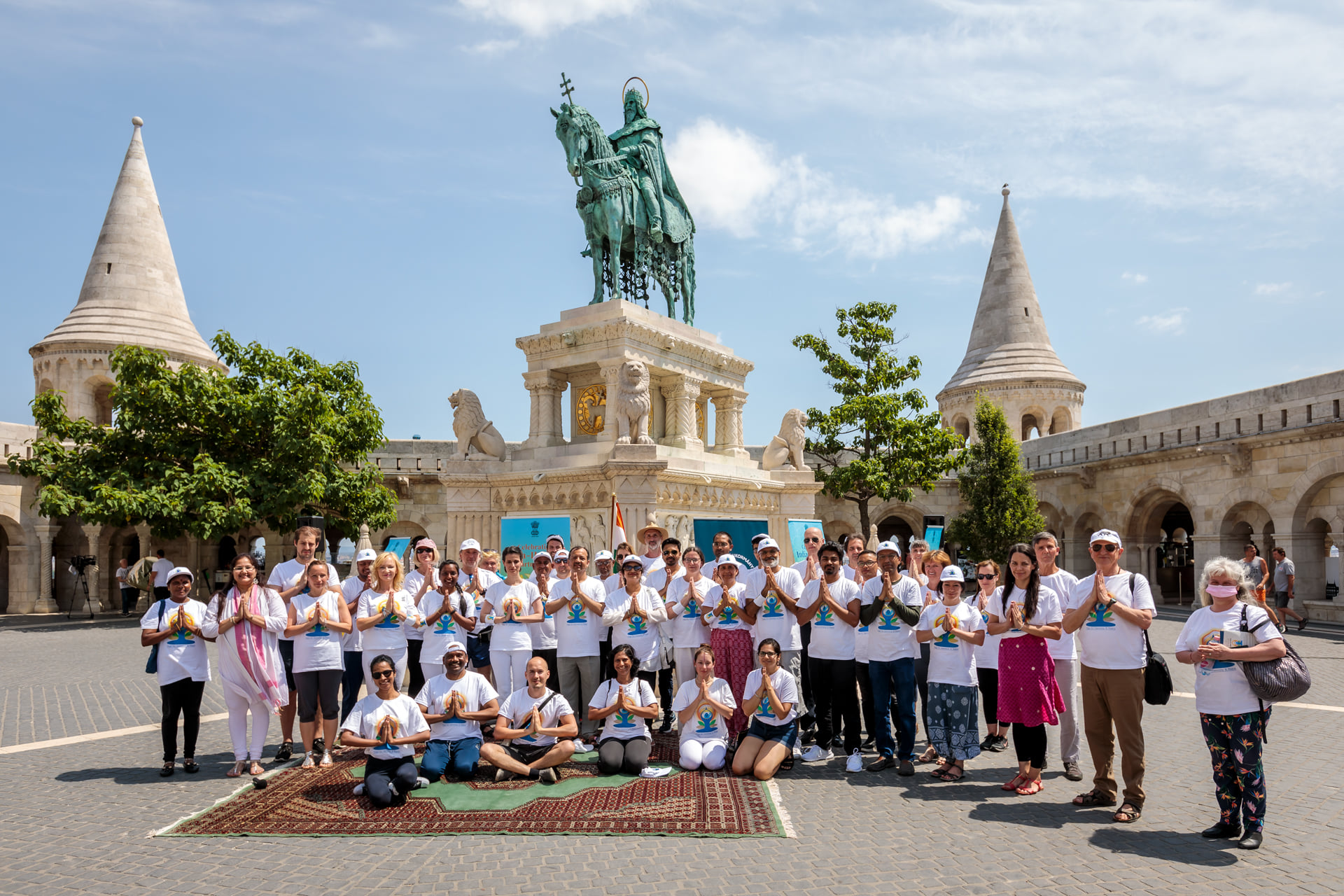
At Fisherman's Bastion, one of the most iconic monuments in Hungary.
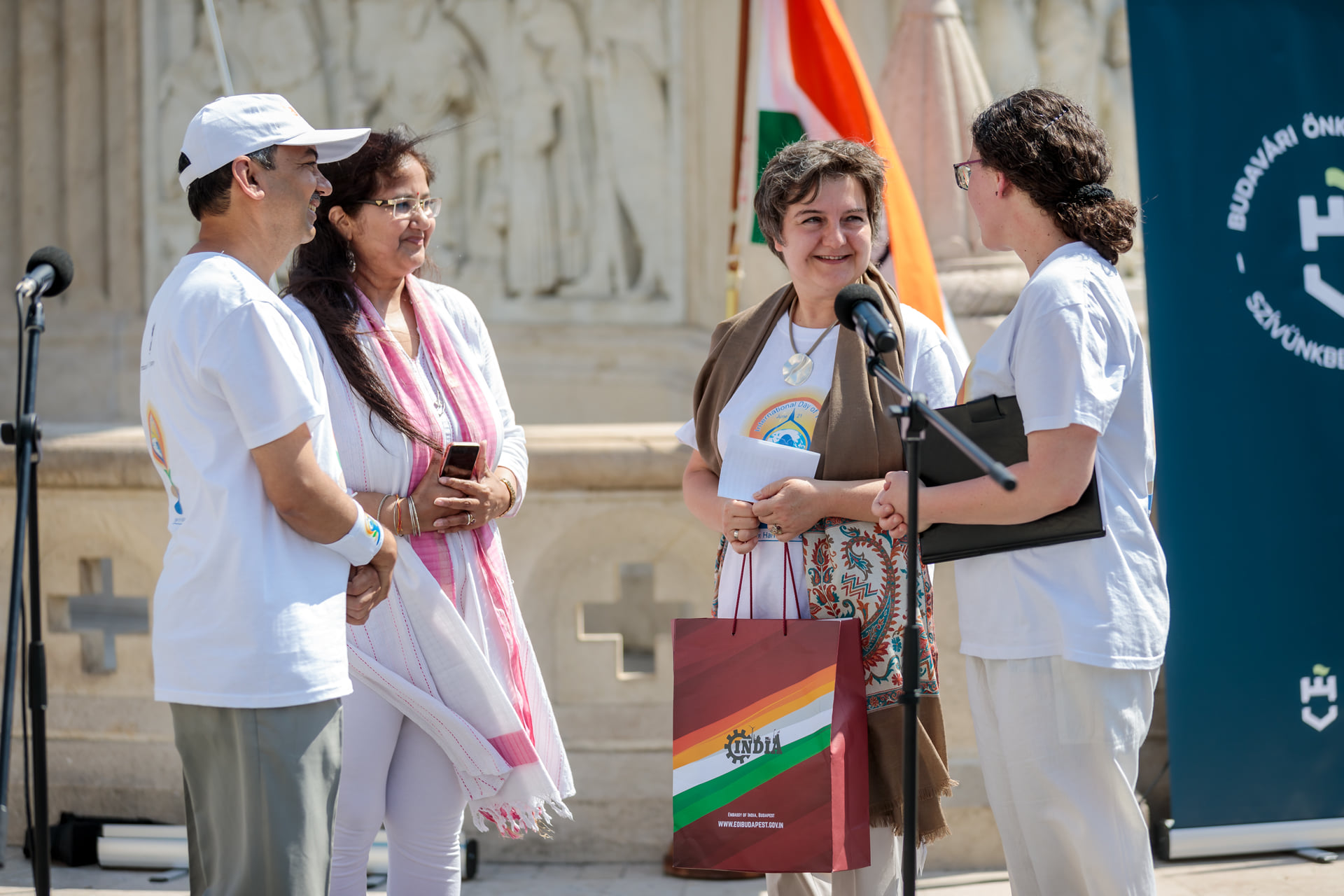
With Mayor of District 1 of Budapest
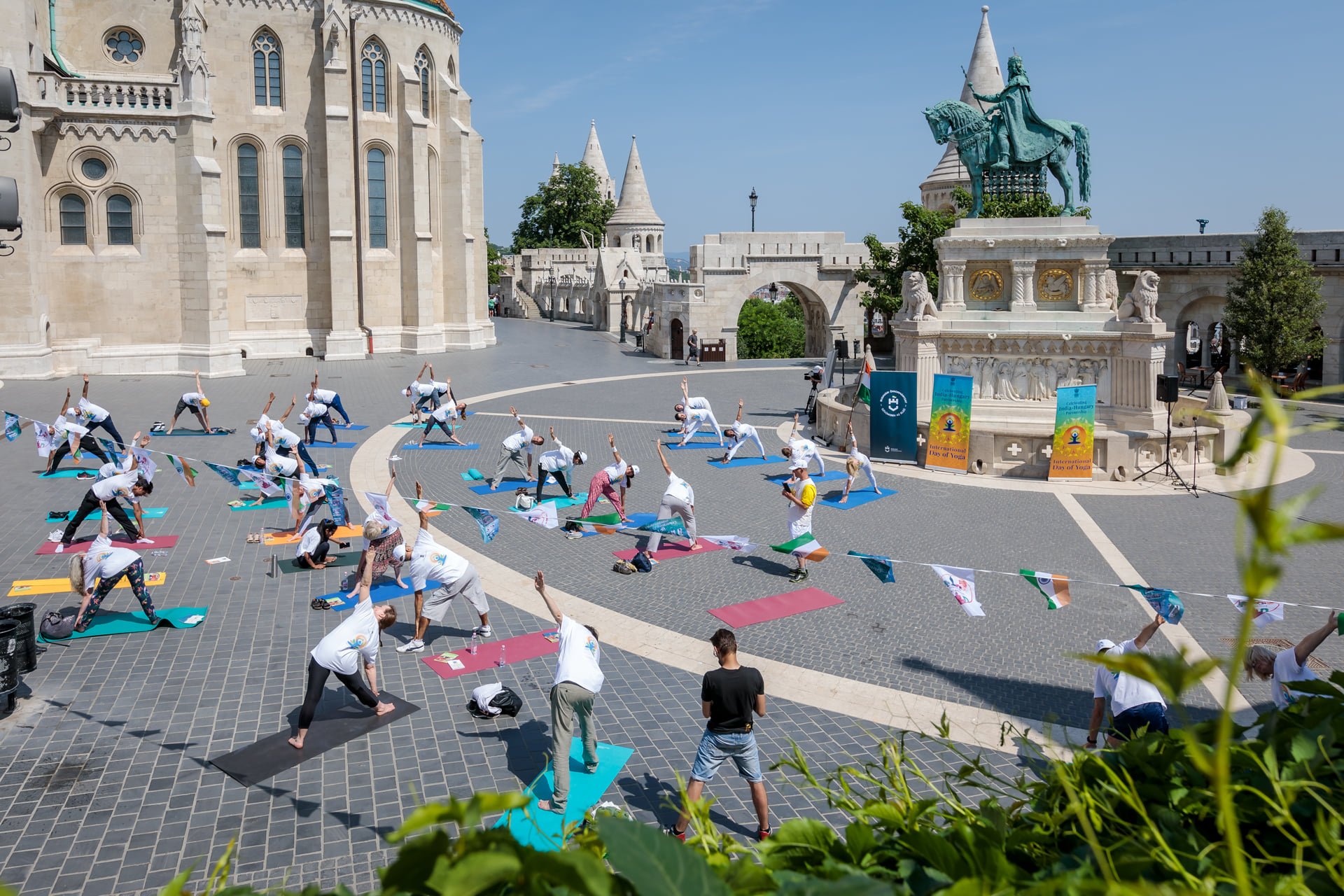
A beautiful view of the Fisherman's Bastion, with yoga practioners
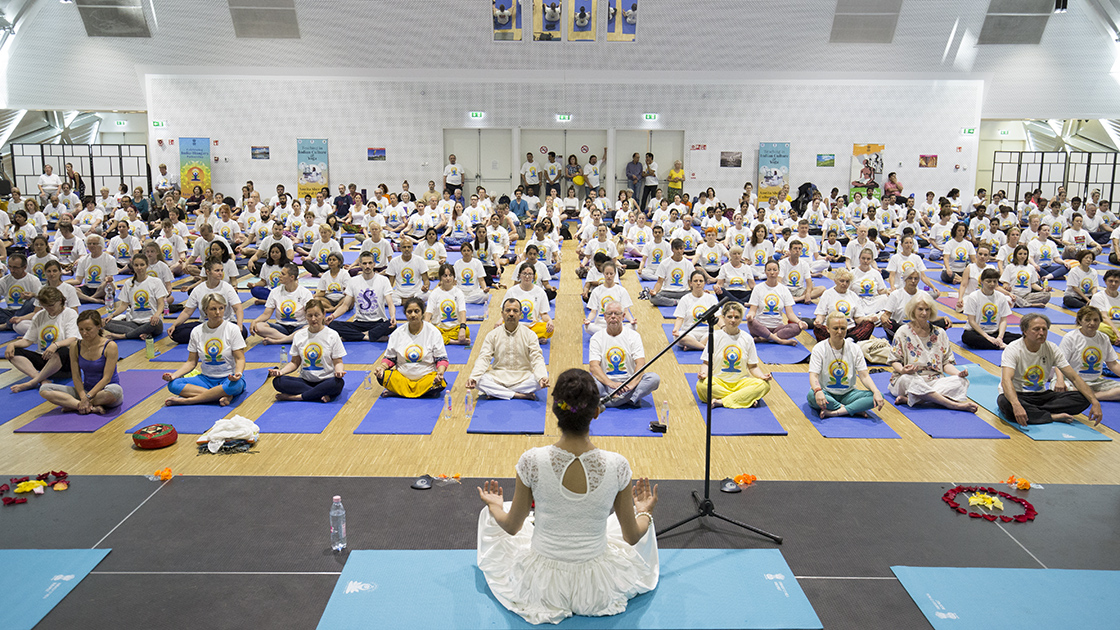
At Balna stadium. Balna means whale in Hungarian, and the stadium derives its name from its whale like shape. Photo by Dávid Harangozó
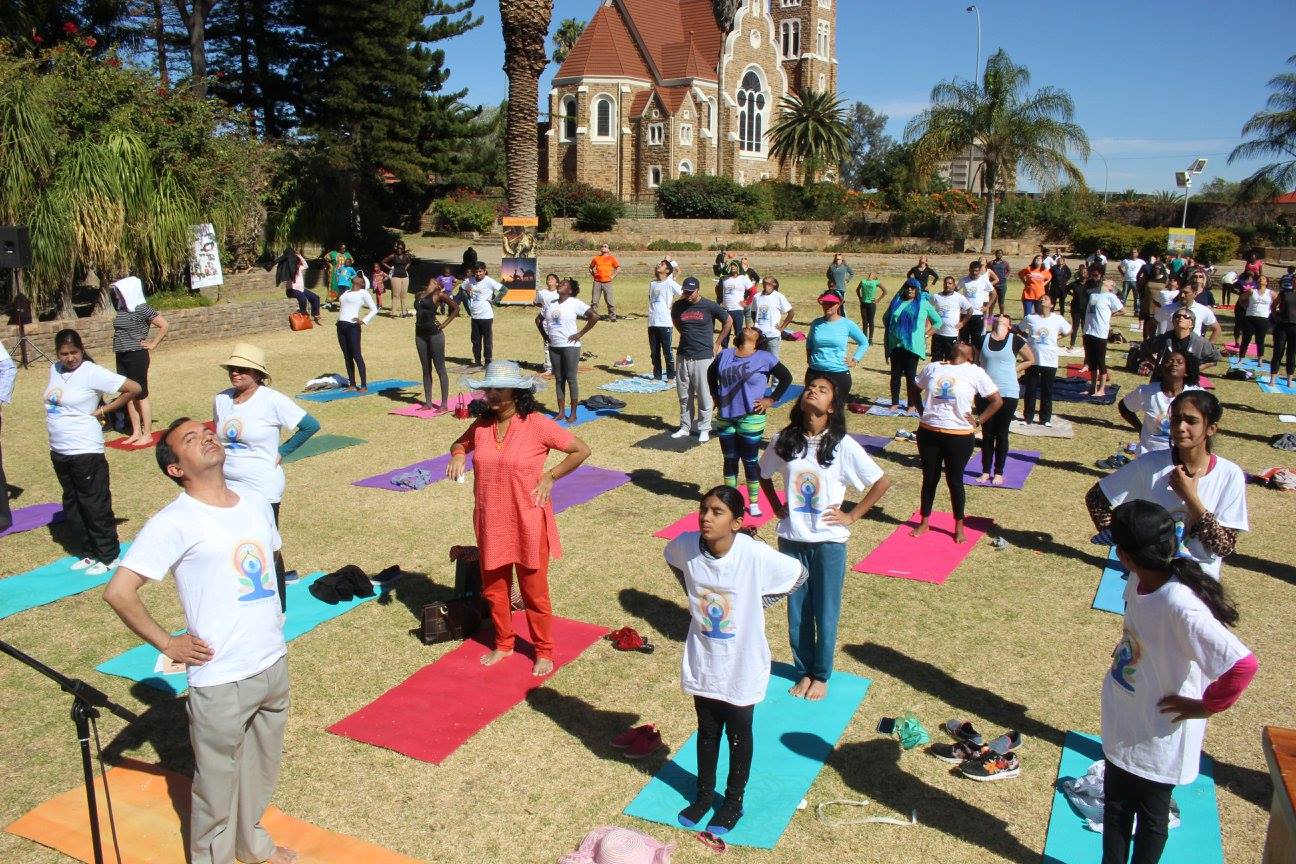
In the Parliament Garden. With Christ Church of Windhoek providing the background

Bhujangasan in the garden of Tata castle.
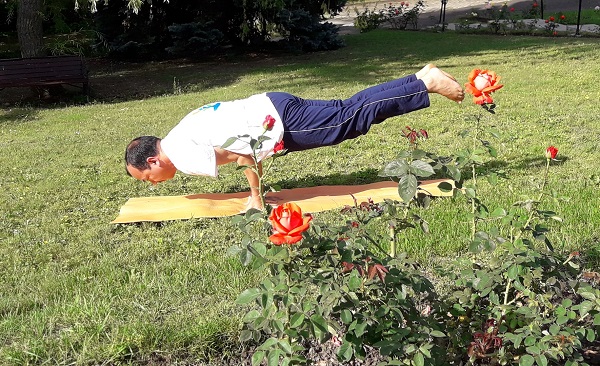
One of my favourite asanas. In India House garden.

This too is in India House garden..
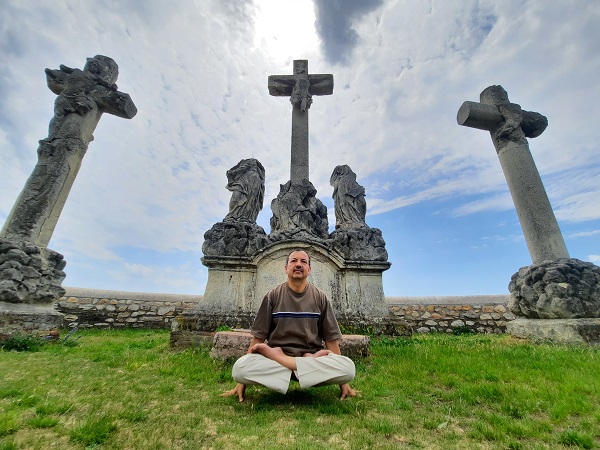
At Calvary Hill, Tata.
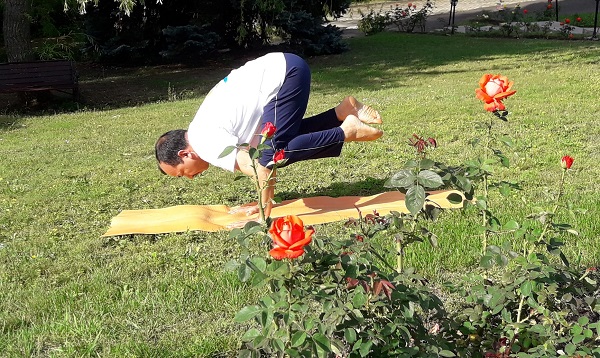
Really pleased that I can still do the Vakasan without too much difficulty.
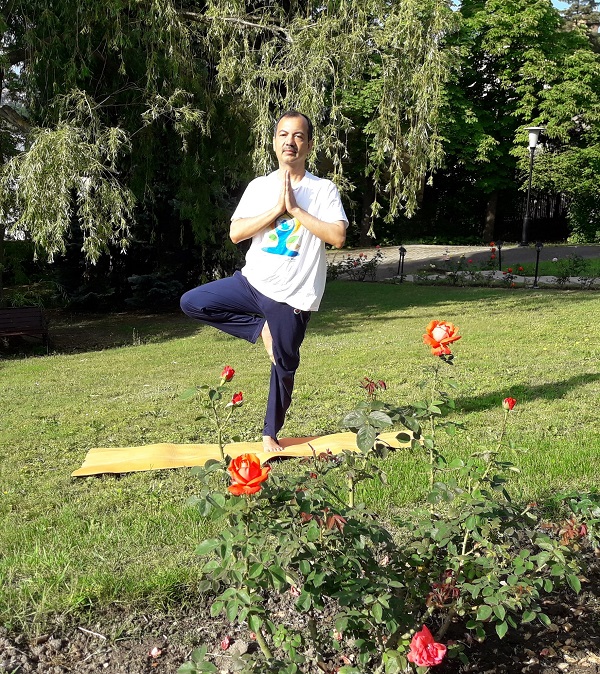
I took this picture with self timer and camera on tripod. So had to run and position myself
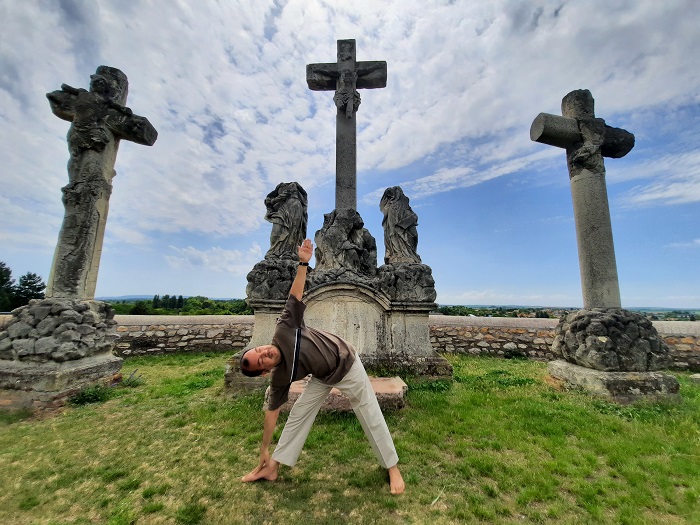
The background here is quite striking, with Cross in background, and a triangle pose.
